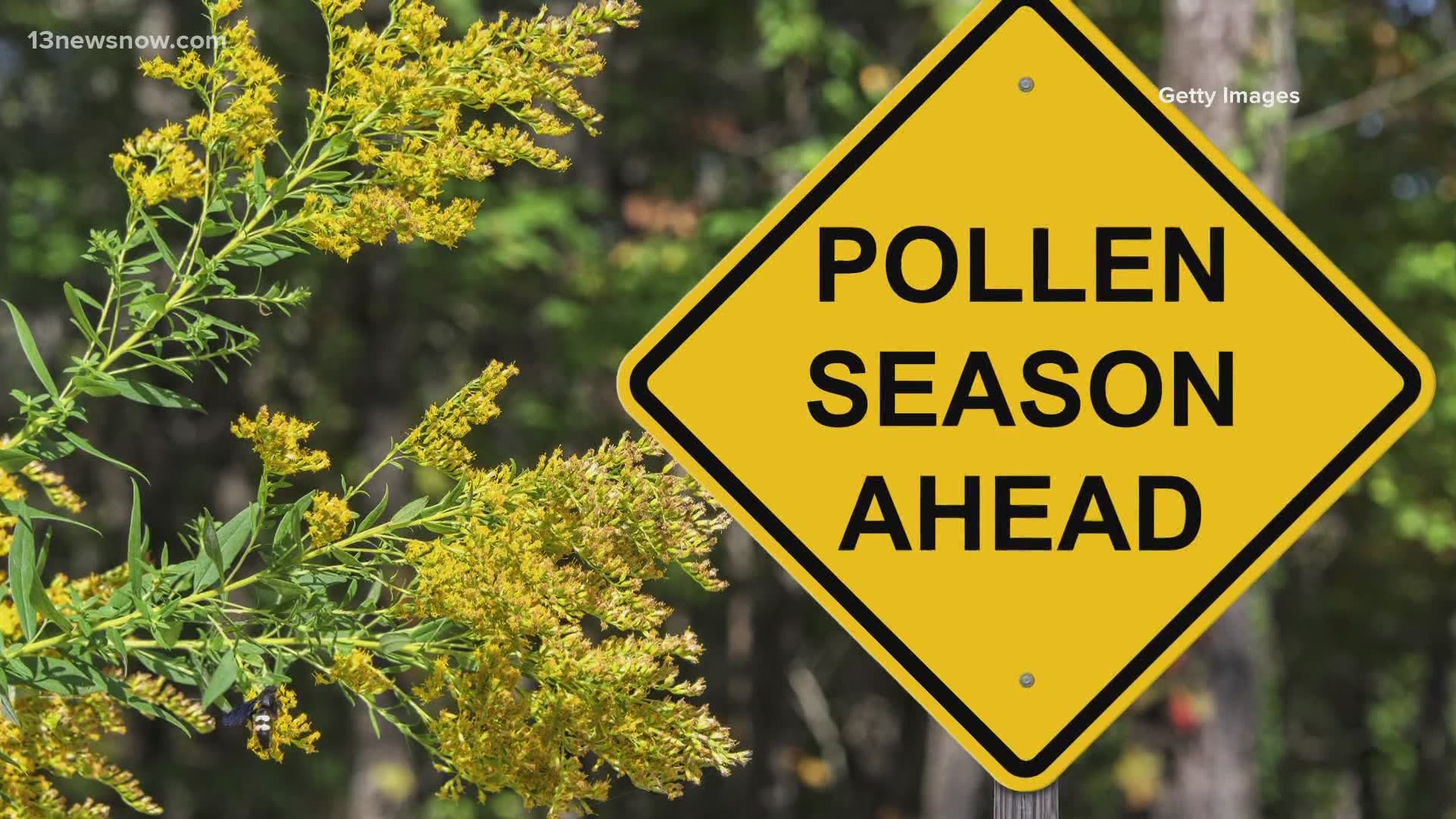NORFOLK, Va. — With warmer temperatures, come those seasonal sniffles.
“I think there is a term for it. They call it the 'Tidewater Crud,'” explained Sentara Virtual Care Medical Director and Family Medicine Physician, Dr. Mark Haggerty.
Dr. Haggerty said those annoying allergies are back in town and they are here to stay for the next couple of months. He said here in Hampton Roads, we’re known for having lots of pollen.
“We are seeing a lot of people with the itchy eyes, the runny nose, and the nasal congestion,” he said.
But during the pandemic, certain symptoms may have you thinking twice. How can you tell the difference between allergies and COVID-19 symptoms? Dr. Haggerty said it can be a little confusing.
“For example, you may have a headache with both illnesses. You may have nasal congestion with both, although interestingly you rarely have a runny nose with COVID,” he explained.
He said with allergies, you most likely will not have body aches, chills, or a fever. Those are COVID-19 symptoms and you should get a COVID-19 test.
Dr. Haggerty said, “Whereas the seasonal allergy symptoms, usually there is a history of allergies for an individual and they can be more mild things like nasal congestion, runny nose, and sneezing.”
Even if you have never had allergies before, you could have them now. Dr. Haggerty said people should start taking antihistamines at least until the end of the summer. He said over-the-counter nasal steroid sprays are also good to help with allergy symptoms.
He explained, “We are encouraging people not to overreact and not get too worried because with the seasons changing, we are starting to see a lot of people with allergies.”

